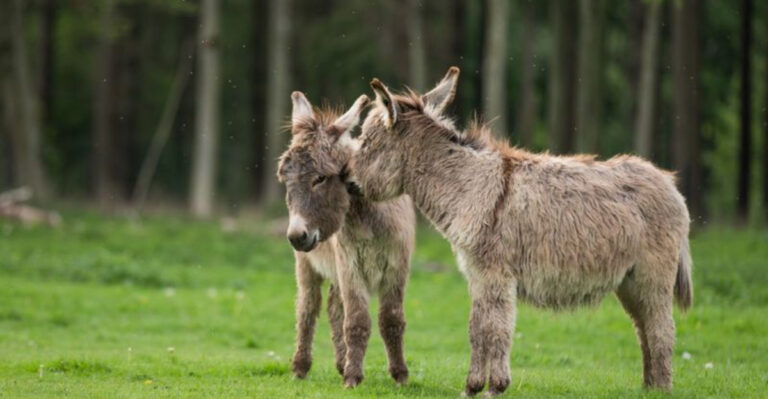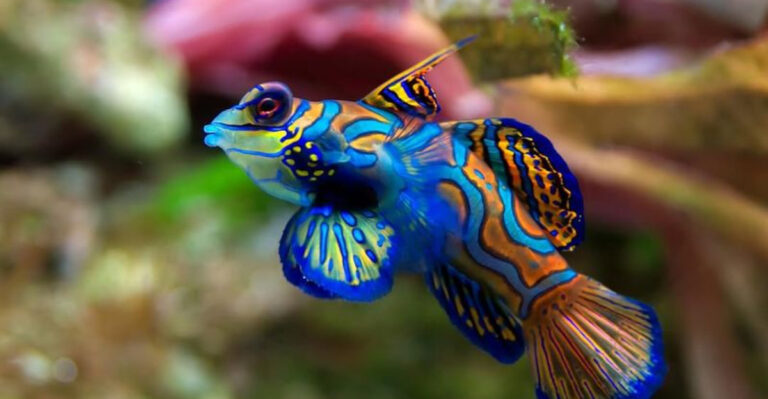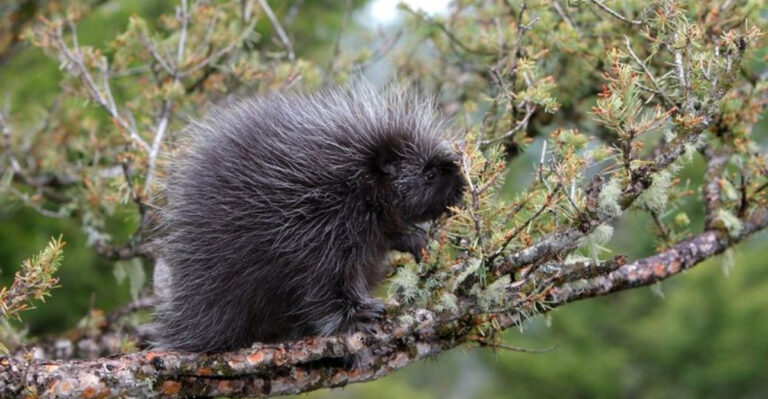18 Canine Companions With The Shortest Life Expectancies

While many dog breeds bring joy and companionship for years, some have surprisingly short life expectancies.
Due to factors like size, health conditions, and genetics, these 18 canine companions tend to live fewer years than most.
In this article, we explore the breeds with the shortest lifespans and the reasons behind their limited time with us. Though their time may be brief, their loyalty and love leave lasting impressions.
1. Rottweiler
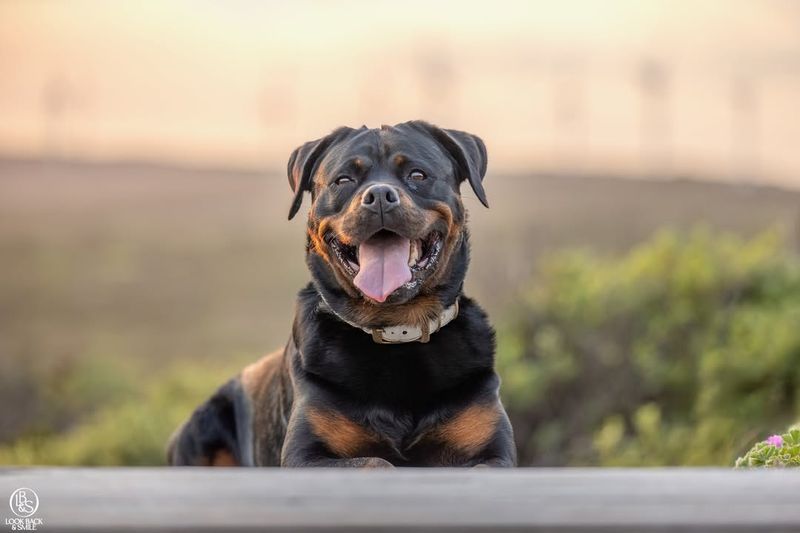
A powerhouse in the canine world, the Rottweiler combines strength and loyalty in a furry package.
Often serving as both protector and friend, they balance their formidable presence with a gentle heart.
However, Rottweilers typically have a life expectancy of 8 to 10 years.
This shorter lifespan is often attributed to their size and susceptibility to certain health conditions like hip dysplasia and heart issues.
Despite this, their love and loyalty leave a lasting impact that outlives their years.
2. Great Dane
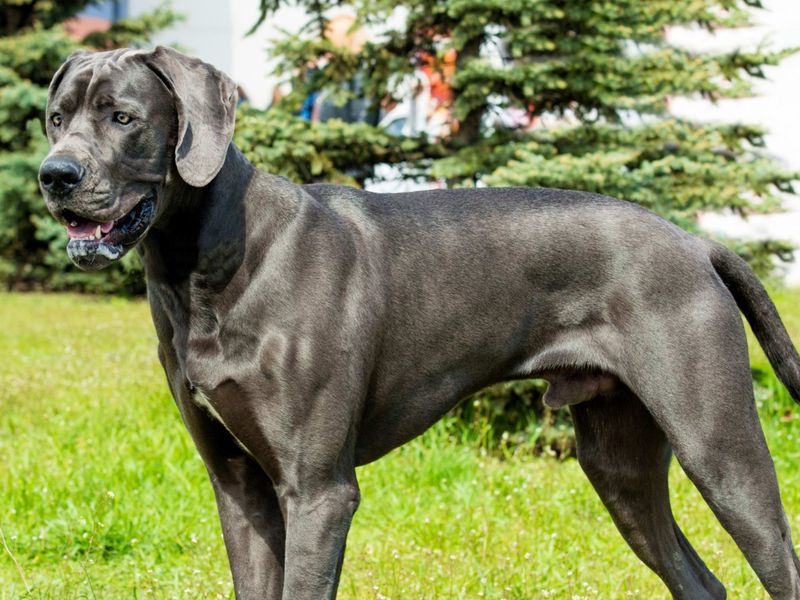
Towering like a gentle giant, the Great Dane is a sight to behold. Known for their loving nature and towering stature, these dogs often live between 7 to 10 years.
Their enormous size contributes to various health issues, including heart disease and joint problems.
Despite their brief lifespan, their affectionate demeanor and calming presence make them a favorite among dog lovers.
Every moment with a Great Dane is large in love, if not in length, making each day a treasured memory.
3. Saint Bernard
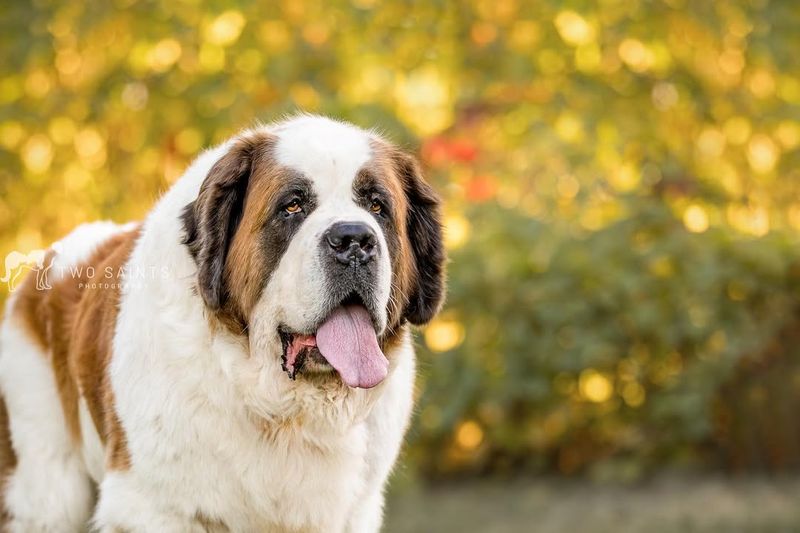
The gentle Saint Bernard, famed for their rescuing prowess in the Swiss Alps, is a big-hearted breed. Their life expectancy ranges from 8 to 10 years, often cut short by heart and joint ailments.
This breed’s warmth and hospitality make them exceptional companions. Despite their size, they are known for their surprisingly gentle interactions with children.
A Saint Bernard’s presence is like a warm hug on a cold day, making their time with you incredibly cherished and comforting.
4. Pug
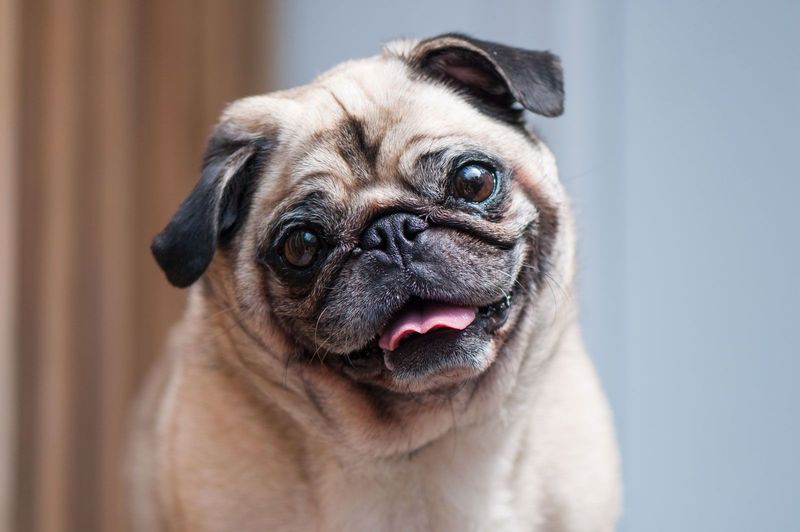
The Pug, with its distinctive face and compact body, is a bundle of joy wrapped in a small package.
Sadly, their life span is often around 12 to 15 years, taken by respiratory issues due to their brachycephalic nature.
Their comical expressions and snorty breathing bring endless smiles, making every day brighter. Pugs may be small, but their love is mighty.
Their amusing antics and loyal companionship ensure they’re forever a family favorite, filling homes with laughter and warmth.
5. Dachshund
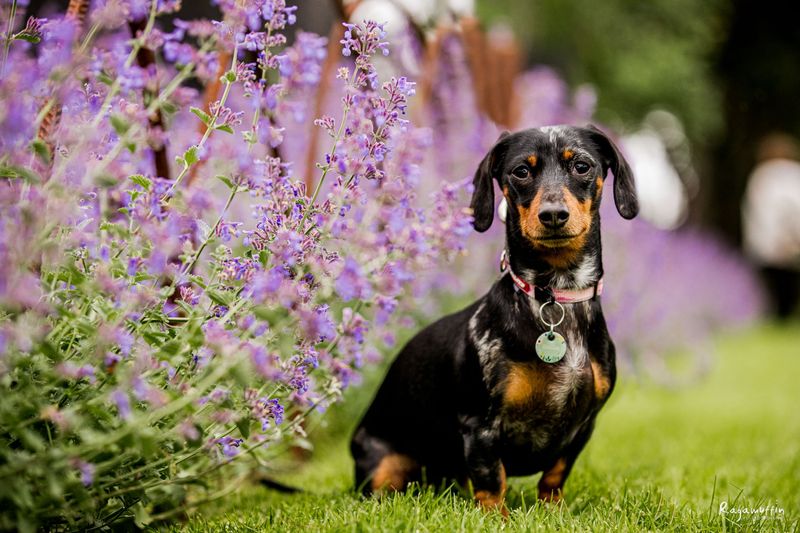
With their unique body shape, Dachshunds are affectionately called ‘wiener dogs’.
These spirited dogs typically live 12 to 16 years, although back problems can affect their longevity. Known for their brave and curious nature, they often act like big dogs in little bodies.
The Dachshund’s playful energy and loyal companionship make every moment memorable. Their love for exploration and mischievous antics keep their owners entertained.
Despite potential health concerns, their zest for life is truly infectious.
6. Boerboel
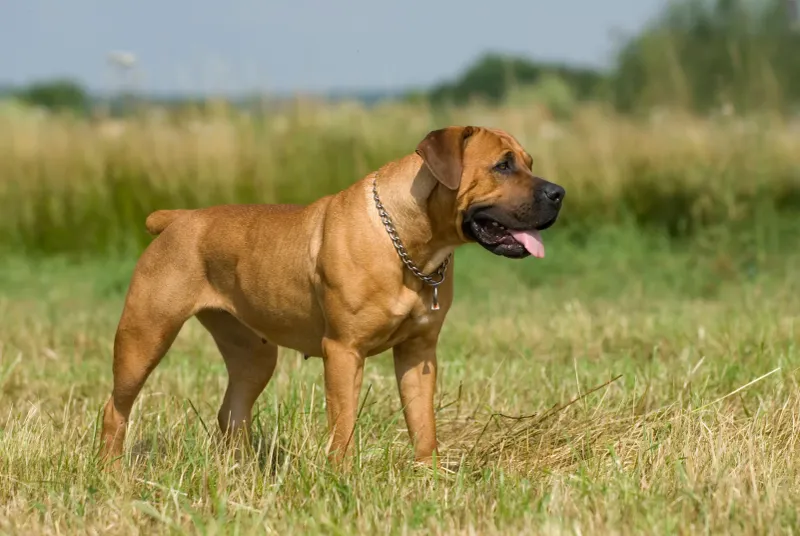
Originating from South Africa, the Boerboel is a protective yet affectionate breed. Their robust build belies a gentle soul, often living between 9 to 11 years.
Large size and predisposition to hip dysplasia can shorten their lifespan. Despite this, they are known for their unwavering loyalty and protective instincts.
Boerboels are wonderful family guardians who thrive on companionship. Their courage and gentle nature ensure they leave a lasting impression, making their shorter time with us even more precious.
7. Boxer
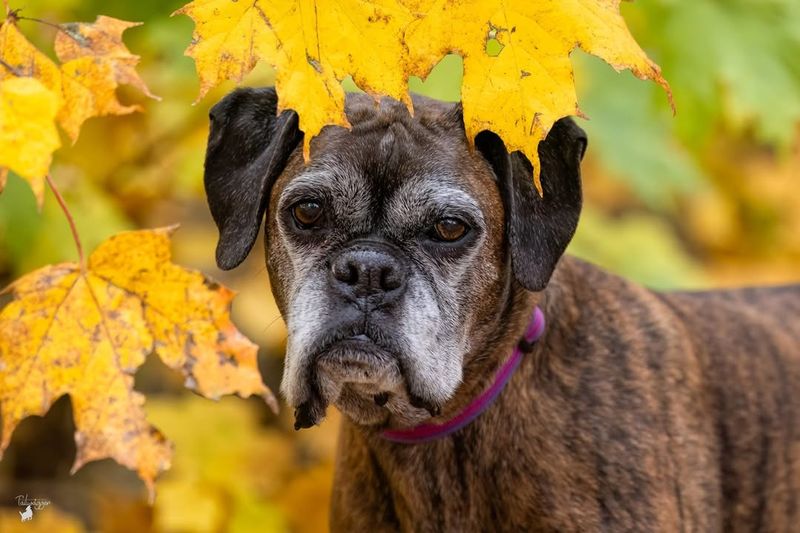
The Boxer, known for its boundless energy and playful nature, is a lively companion. Unfortunately, they generally live 10 to 12 years, often plagued by heart problems and cancer.
Their playful spirit and endless enthusiasm make them beloved family pets. Boxers are known for their unique blend of strength and gentleness, always ready for fun.
Their exuberance and loyalty forge deep bonds with owners, making their shorter lives filled with unforgettable joy. Each day is an adventure with a Boxer.
8. Irish Wolfhound
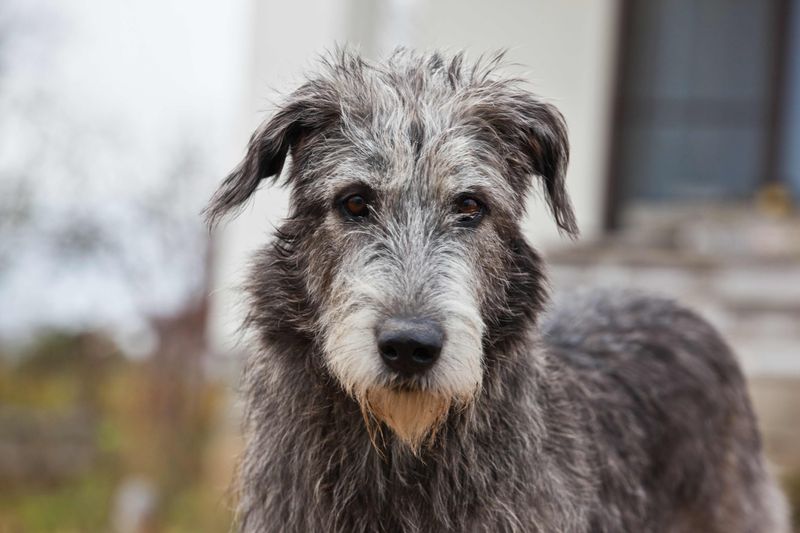
Known as the gentle giant, the Irish Wolfhound is a breed of elegance and grace. Their lives often span just 6 to 8 years, due to their large size and heart conditions.
Despite their short time, they are loved for their gentle nature and loyalty. Their calm and noble presence brings tranquility to any home.
Cherished for their historical significance and majestic appearance, Irish Wolfhounds leave an indelible mark on the hearts they touch, making their brief lives profoundly meaningful.
9. Bernese Mountain Dog
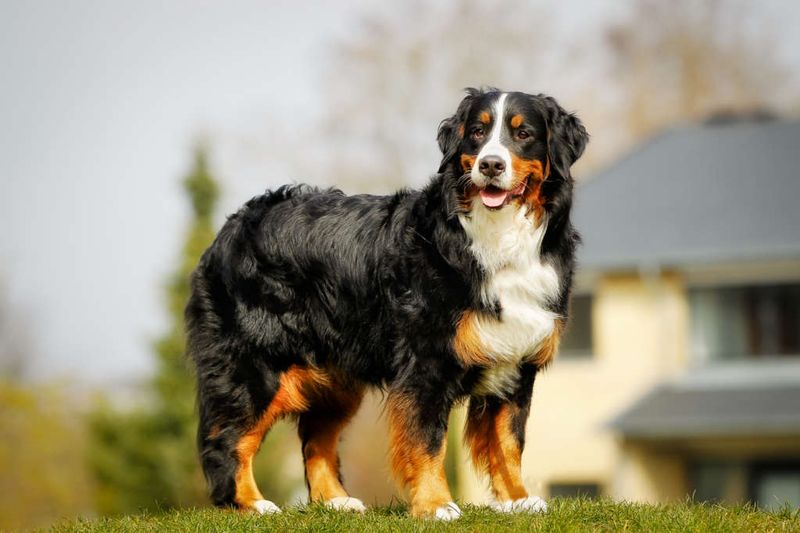
With their striking tricolor coats, Bernese Mountain Dogs are as beautiful as they are loving. Typically living 6 to 8 years, they are prone to cancer and joint issues.
Their affectionate and gentle demeanor makes them treasured pets, especially among families. These dogs are known for their strong work ethic and loyalty.
The short lifespan of a Bernese Mountain Dog is filled with warmth and devotion, making every moment with them a testament to their loving nature. Their legacy is one of love.
10. Bullmastiff
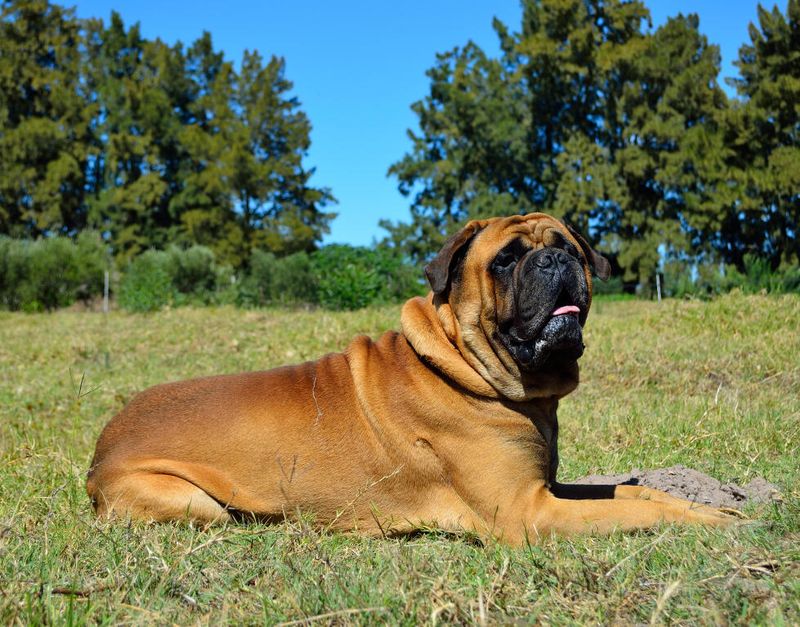
The Bullmastiff is a breed known for its protective instincts and gentle nature. Their life expectancy ranges from 7 to 9 years, often shortened by bloat and hip dysplasia.
Despite this, they make excellent family protectors and companions. Their calm and reliable demeanor brings a sense of security to those they love.
Bullmastiffs are gentle giants who form strong bonds with their families. Their presence is both comforting and reassuring, making every moment with them valuable and cherished.
11. Neapolitan Mastiff
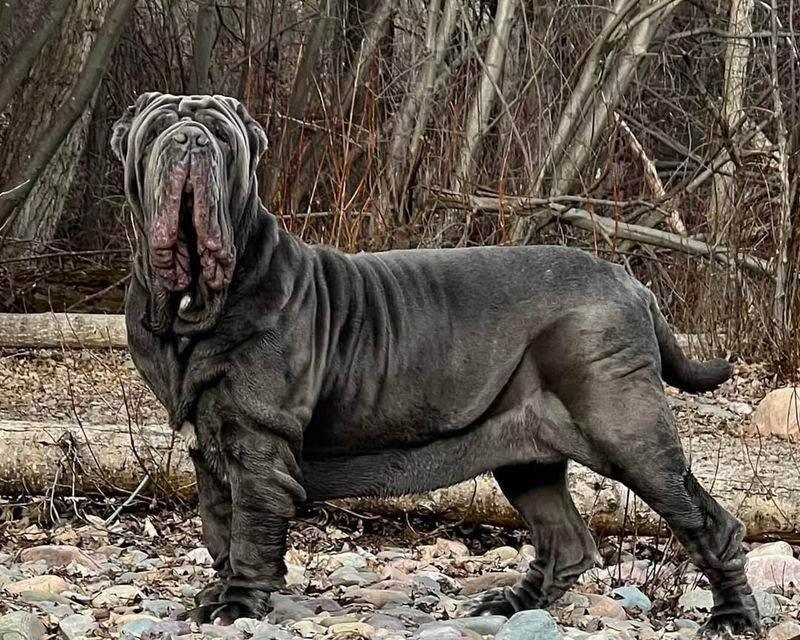
Famed for their iconic wrinkles, Neapolitan Mastiffs are both imposing and affectionate. They typically live for 7 to 9 years, with heart and joint problems affecting their lifespan.
Their loyal and protective nature makes them exceptional guard dogs. Despite their size, Neapolitan Mastiffs are known for their gentle and loving interactions with family members.
Their unique appearance and steadfast loyalty ensure a lasting impression. These gentle giants fill our hearts with love, even if their time is brief.
12. Cavalier King Charles Spaniel

Charming and elegant, the Cavalier King Charles Spaniel is a small dog with a big heart.
They generally live around 9 to 14 years, often affected by heart disease. Despite this, their love for life and people is boundless.
Known for their affectionate and friendly nature, Cavaliers are wonderful companions.
Their joyous spirit and endearing faces make every moment delightful.
The love and happiness they bring are immeasurable, ensuring they remain a cherished part of the family.
13. Chow Chow
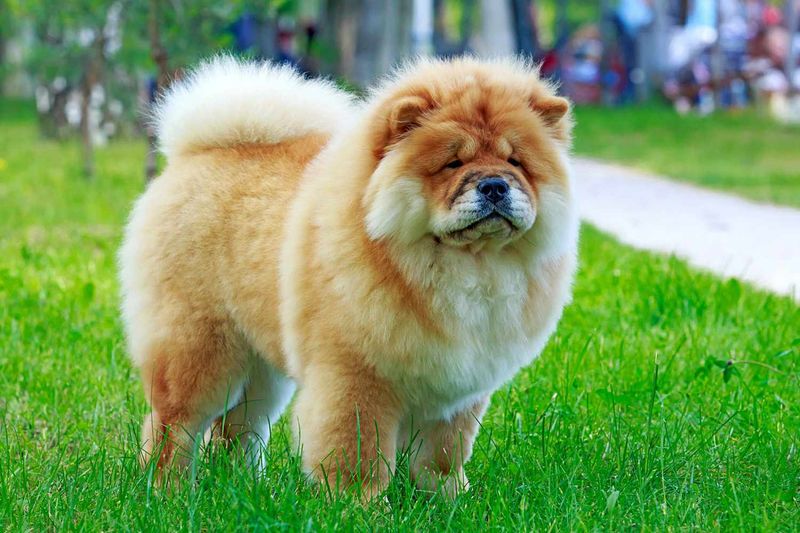
Regal and reserved, the Chow Chow is a breed like no other.
They often live 8 to 12 years, with health concerns like hip dysplasia and thyroid issues. Their independent nature and distinctive appearance make them stand out.
Chow Chows are known for their loyalty and quiet dignity, often forming strong bonds with their families.
Despite their aloofness, they remain deeply devoted companions. The presence of a Chow Chow is like having a piece of ancient royalty in your home.
14. Dogue De Bordeaux (French Mastiff)
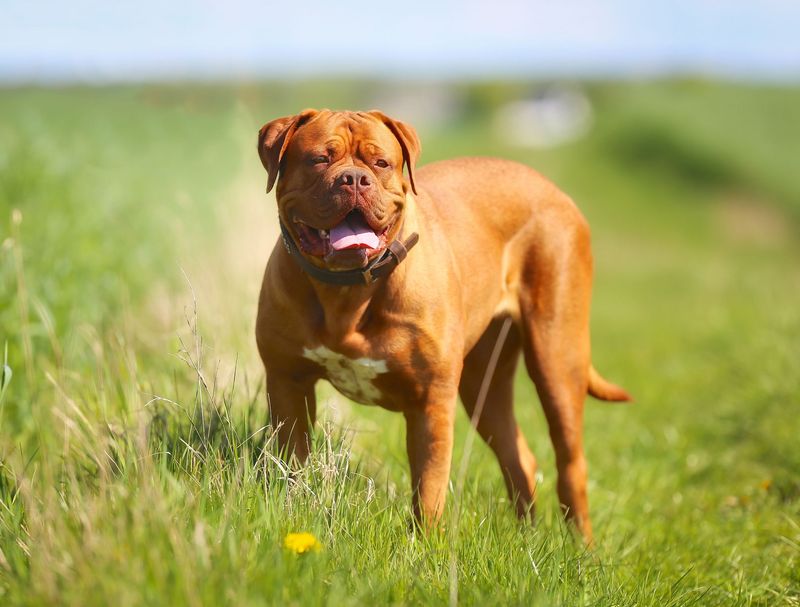
The Dogue de Bordeaux, with its formidable appearance, is a gentle soul.
Typically living 5 to 8 years, their large size and genetic predispositions contribute to shorter lifespans. Despite this, they are known for their deep loyalty and protective instincts.
Their affectionate nature and strong bond with their families make them cherished pets. A Dogue de Bordeaux’s time with you is filled with love and warmth, leaving a lasting impact long after they’re gone.
15. Newfoundland
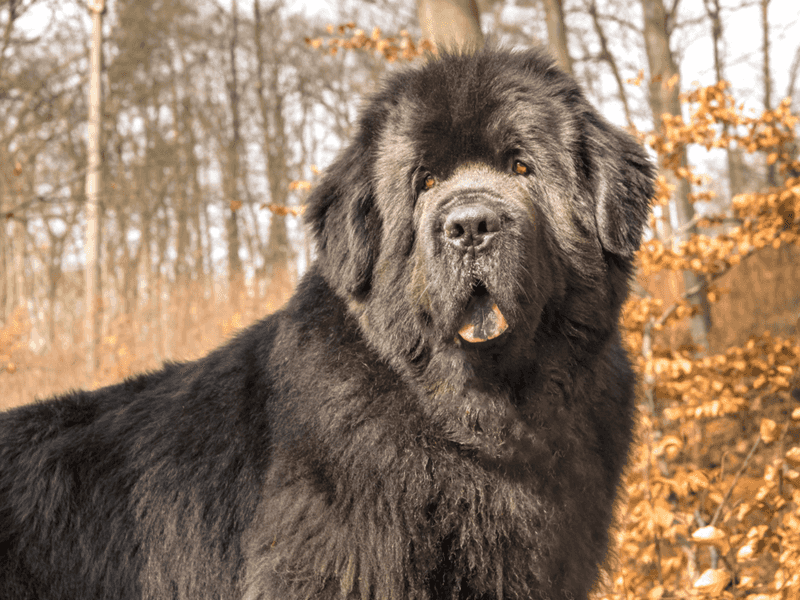
Newfoundlands, often dubbed as the ‘Gentle Giants’, are known for their sweet nature and love of water. They usually live 8 to 10 years, often affected by heart issues and bloat.
Their strong swimming ability and rescue instincts make them unique. Newfoundlands are devoted family dogs, known for their calm demeanor and loving nature.
Despite their shorter lifespan, the joy and comfort they bring to families is immense, making them irreplaceable companions.
16. Bulldog
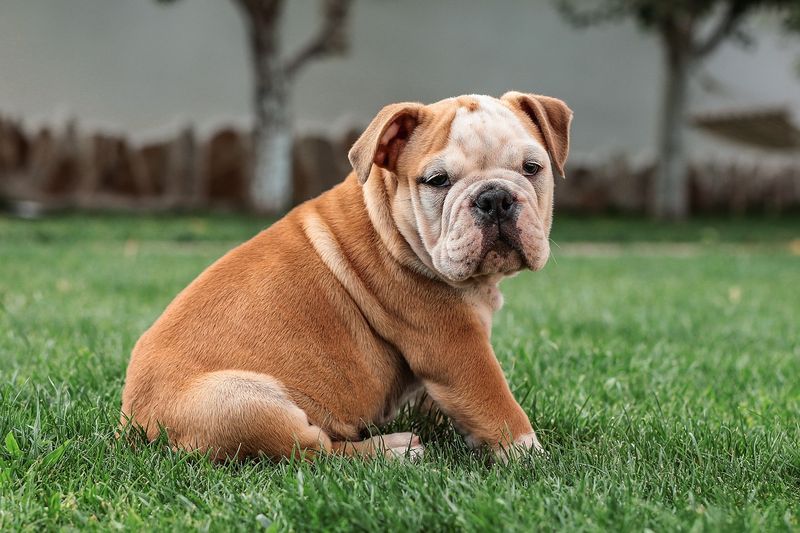
The Bulldog, with its distinctive wrinkled face and stocky build, is a bundle of determination and affection. They typically live 8 to 10 years, with breathing issues often affecting their lifespan.
Despite this, Bulldogs are known for their gentle disposition and tenacity. Their comical expressions and loving nature make them beloved family pets.
A Bulldog’s presence is like a comforting hug, bringing warmth and joy to any home. They may be short-lived, but their impact is everlasting.
17. Basset Hound
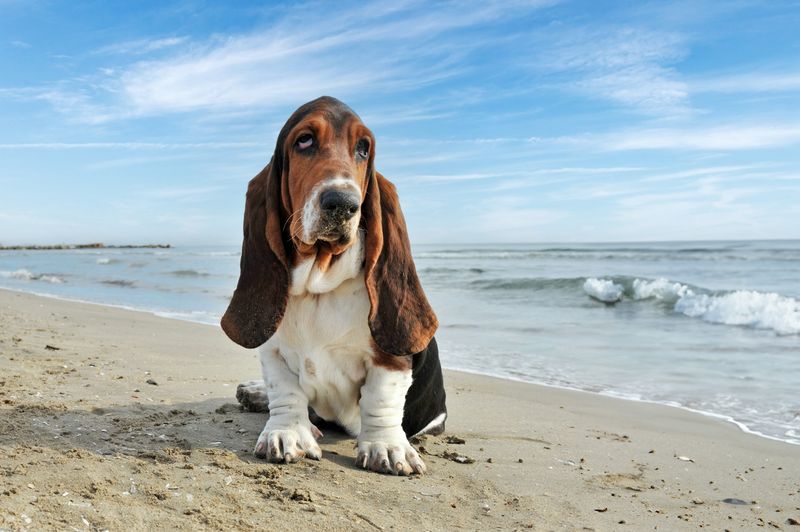
With their droopy eyes and elongated ears, Basset Hounds have a distinctive and endearing appearance. Known for their exceptional sense of smell, these dogs have historically been used in hunting. Despite their laid-back demeanor, they are incredibly loyal.
A Basset Hound’s life expectancy ranges between 8 to 12 years. They are prone to certain health issues, such as obesity and ear infections, which can affect their lifespan.
18. Irish Setter
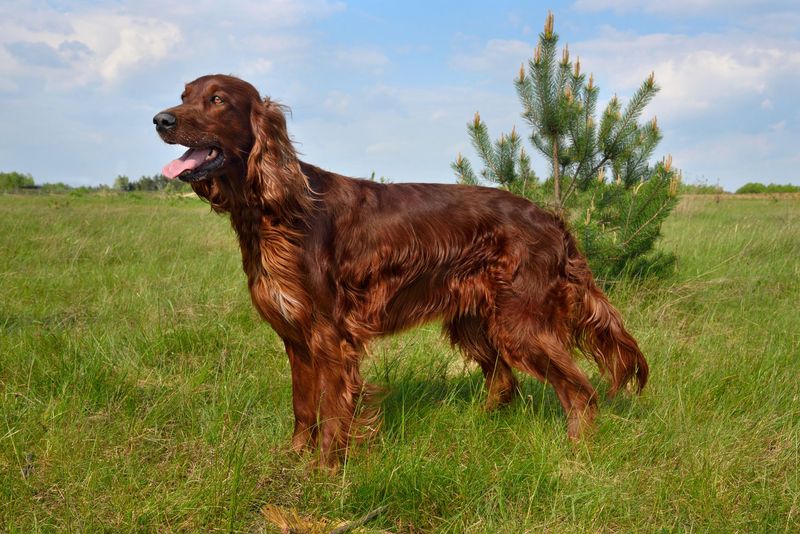
The Irish Setter is celebrated for its striking red coat and lively spirit. Often seen bounding in fields, their energy and enthusiasm are contagious. These dogs are known for their friendly nature and are great companions for active families.
Typically, an Irish Setter’s lifespan is around 10 to 12 years. They are susceptible to genetic conditions such as hip dysplasia and progressive retinal atrophy.

